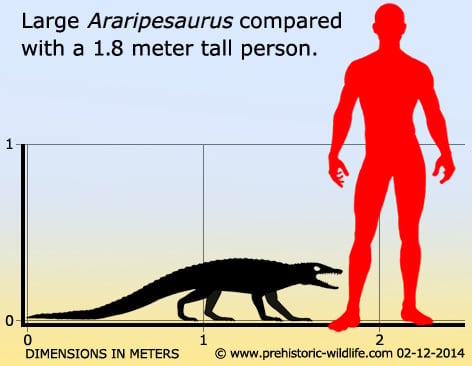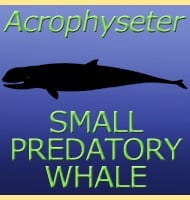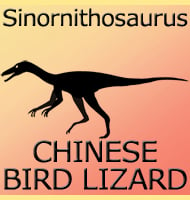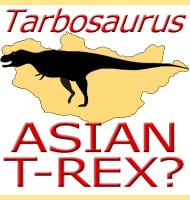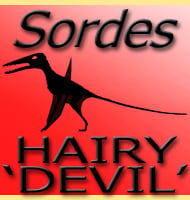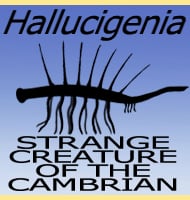In Depth
Often known in the media as either ‘Dog Croc’ or ‘Rat Croc’, Araripesuchus is one of the better known terrestrial crocodiles. Study of the dentition reveals that Araripesuchus may have been a generalist hunter. This is indicated by sharp conical teeth towards the front of the mouth, with more rounded sturdier teeth towards the back. These two sets of teeth are separated on both upper and lower jaws by enlarged canines that may have been used for killing small prey after it had been seized by the smaller and more numerous pointed teeth towards the front. It’s thought that because of its small size, Araripesuchus hunted for smaller animals such as lizards and mammals, and may even have raided the nests of dinosaurs, snatching hatchlings while they were still defenceless.
Further Reading
– Sobre um crocodilideo notossuquio do Cretacico Brasileiro. – Boletim Divisao de Geolgia e Mineralogia Rio de Janeiro (Brazil) 188:1-55. – L. I. Price – 1959. – Die biogeographische Geschichte der Krokodilier, mit Beschreibung einer neuen Art, Araripesuchus wegeneri [The biogeographic history of Crocodilia, with description of a new species, Araripesuchus wegeneri]. – Geologische Rundschau 70 (2): 611–624. – E. Buffetaut – 1981. – A new species of Araripesuchus (Crocodylomorpha, Mesoeucrocodylia) from the Lower Cretaceous of Patagonia (Argentina). – Journal of Vertebrate Paleontology 20 (1): 57–76. – F. J. Ortega, Z. B. Gasparini, A. D. Buscalioni & J. O. Calvo – 2000. – New Araripesuchus remains from the early Late Cretaceous (Cenomanian–Turonian) of Patagonia. – American Museum Novitates 3940:1-38. – D. Pol & S. Apestegu�a – 2005. – Osteology and phylogeny of a new species of Araripesuchus (Crocodyliformes: Mesoeucrocodylia) from the Late Cretaceous of Madagascar. – Historical Biology 18 (3): 255–369. – A. H. Turner – 2006. – Cretaceous crocodyliformes from the Sahara. – ZooKeys 28:1-143. – P. C. Sereno & H. C. E. Larsson – 2009.
